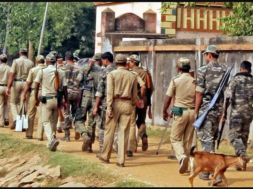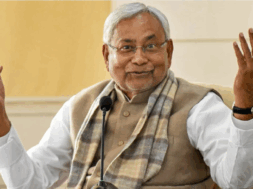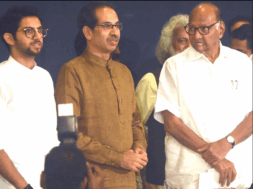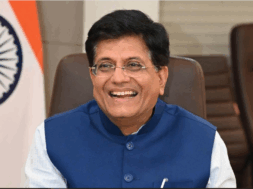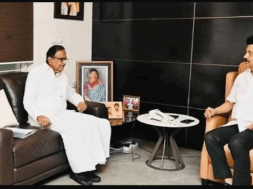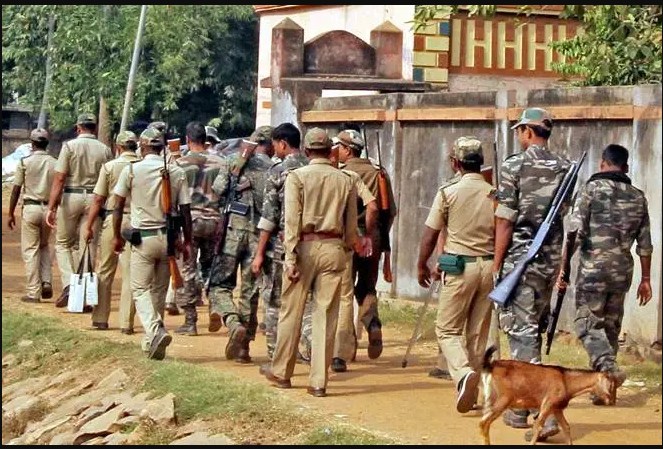
Manas Dasgupta
NEW DELHI, Apr 12: Even as the Calcutta High Court on Saturday ordered the deployment of central forces in violence-hit areas in Murshidabad district in West Bengal to restore order, the central intelligence agencies have blamed the Mamata Banerjee government in the state for the deteriorating law and order situation.
“The state government not taking appropriate action against communal tensions is potential exploitation of policy disputes like the Waqf Amendment Act, 2025,” sources said.
According to top intelligence sources, escalating communal violence amid protests over the Centre’s Waqf Act in Murshidabad where three people were killed, and North 24 Parganas after Friday prayers occurred because local intelligence assessments were not made.
Intelligence agencies note heightened communal rhetoric, with fears that political factions are exploiting religious sentiments to consolidate votes. Protesters, led by Muslim groups like AIMPLB, argue the Act undermines their control over Waqf properties.
Attacks on central agencies in West Bengal were a regular norm, including an attack on ED officials during Sandeshkhali when agencies were raiding Trinamool Congress leaders’ homes in a ration scam case, sources pointed out. The state police allegedly failed to intervene, raising concerns about collusion between the ruling party and law enforcement, they said.
“BJP workers have allegedly faced kidnappings and murder,” sources said. “The chief minister refused to implement the Waqf Act, blaming the central government for the unrest. TMC prioritises minority appeasement over impartial governance. Hindu properties were targeted during protests, with minimal police response.”
Agencies highlight the risks of radical groups exploiting religious gatherings, as seen in the Waqf protests, to incite broader unrest. Protests have paralysed transportation, like Kamakhya–Puri Express disruptions, and forced business closures, destabilising livelihoods.
“Recurring electoral violence (such as during panchayat polls) and allegations of voter intimidation threaten democratic integrity,” a source said. “Proximity to international borders like Bangladesh raises concerns about cross-border criminal networks exploiting the chaos.”
Intelligence agencies say that West Bengal’s crisis is a mix of political opportunism, communal polarisation, and administrative paralysis. Waqf Act protests are a flashpoint, while deeper issues like institutional collusion and minority appeasement tactics are causing instability, sources said.
Immediate measures — such as neutral law enforcement, interagency coordination, and federal oversight — are critical to prevent further deterioration, they added.
In another development, at least 18 police personnel were injured as a protest rally demanding the rollback of the Waqf (Amendment) Act turned violent in Tripura’s Unakoti district on Saturday.
West Bengal Chief Minister Mamata Banerjee has declared that her state would not implement the Waqf (Amendment) Act and appealed for peace while cautioning against political misuse of religion and warned of legal action against those inciting riots.
MP Abhishek Banerjee, who is Mamata Banerjee’s nephew, also made an appeal for calm and claimed that some forces are trying to “spread unrest in Bengal.” “After failing to fight us politically on the issue of development, many are trying to spread unrest in Bengal by sowing divisions in the name of religion. I appeal to all today to maintain peace and uphold Bengal’s legacy of harmony. We must all be alert and aware. Some people want Bengal to burn,” said the MP from Diamond Harbour.
Meanwhile, the Union Home Secretary held a video conference with the Chief Secretary and DGP of West Bengal on Saturday. The DGP, West Bengal, briefed that the situation was tense but under control and was being monitored closely, a press release by the Union Ministry of Home Affairs said.
The DGP further stated that he was taking the assistance of BSF posted locally, and that more than 150 persons have been arrested. The Union Home Secretary stated that apart from nearly 300 BSF personnel locally available in Murshidabad, additional 5 Companies have been deployed at the request of the State Government.
The Union Home Secretary advised the State administration to keep a close watch on other sensitive districts also, and to put in place adequate steps to ensure normalcy at the earliest, the press release said. He also stated that the Centre was also closely monitoring the situation and assured the State all possible assistance including deployment of additional manpower, if necessary.
